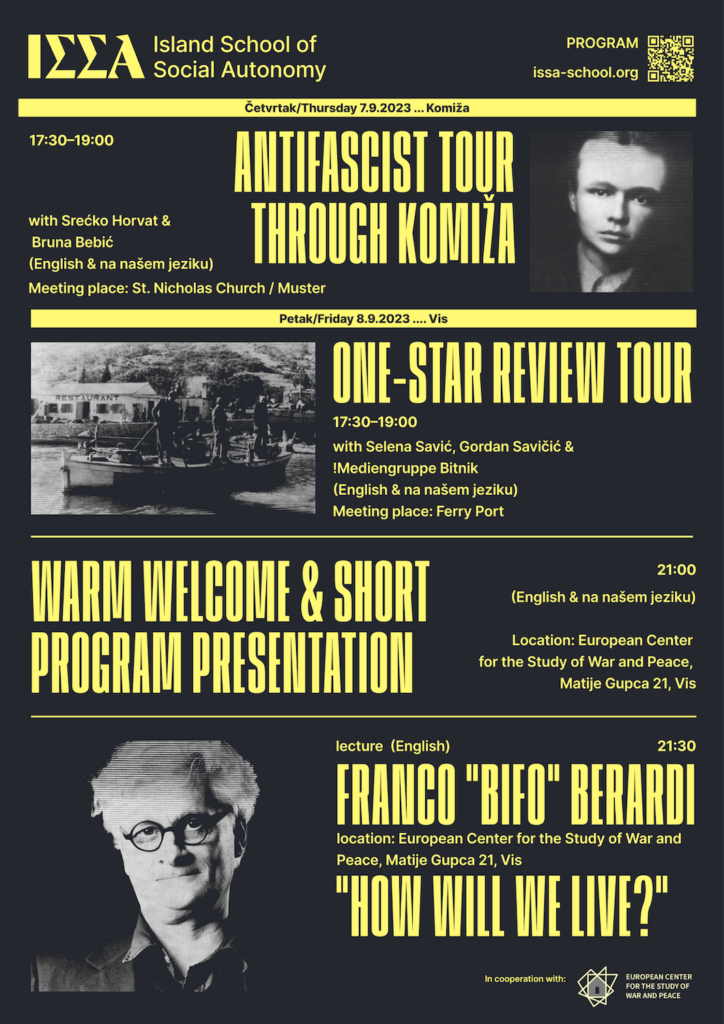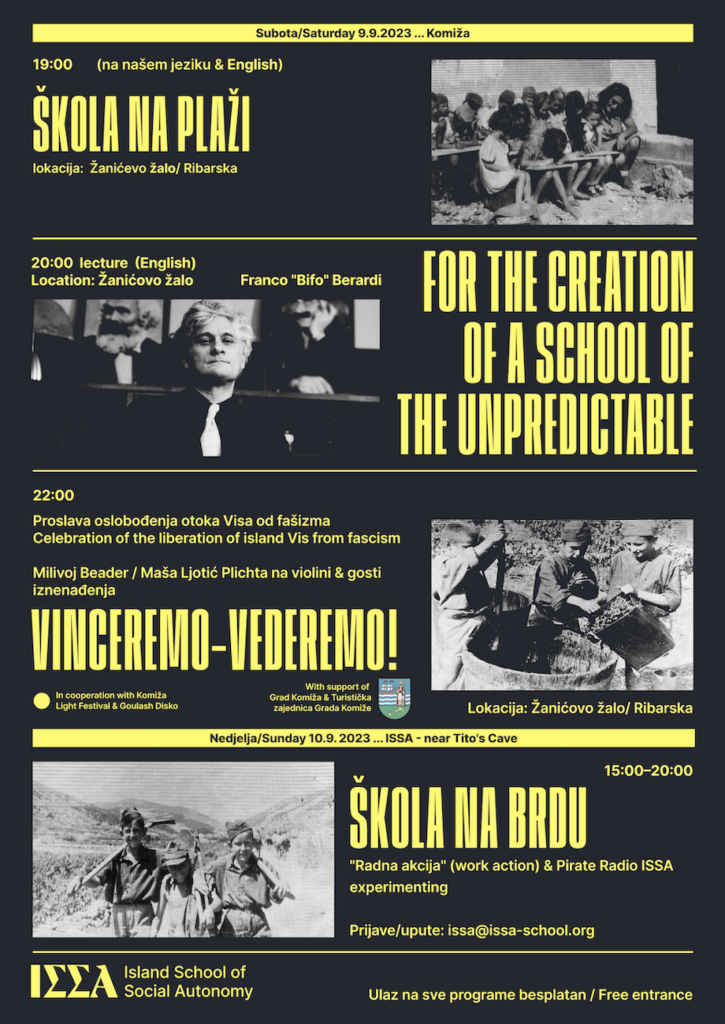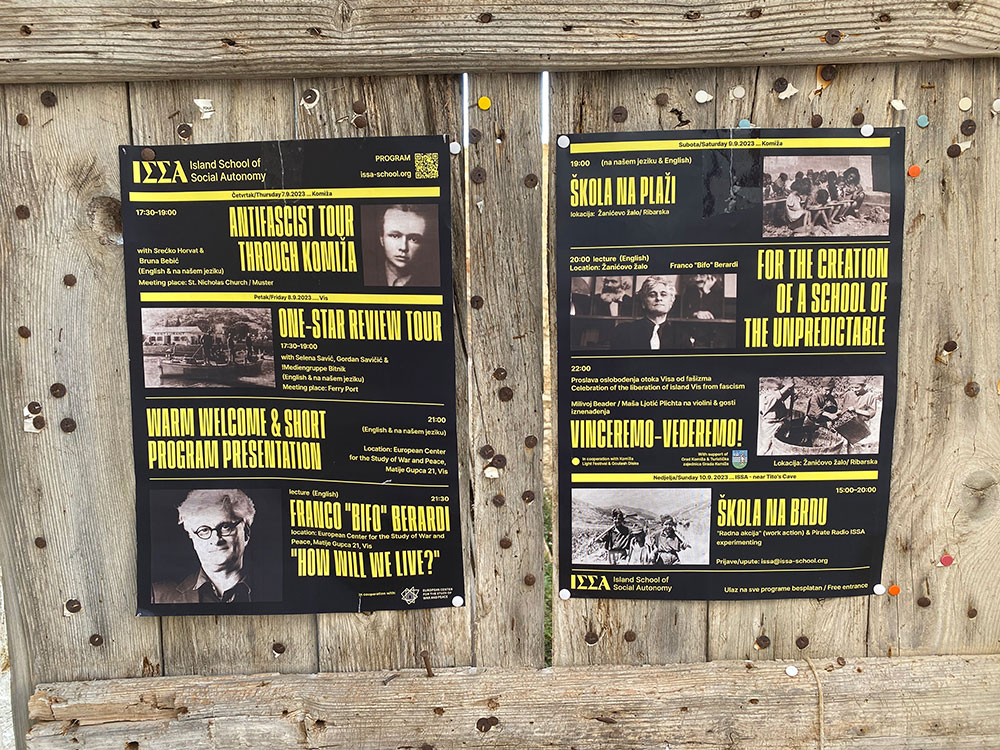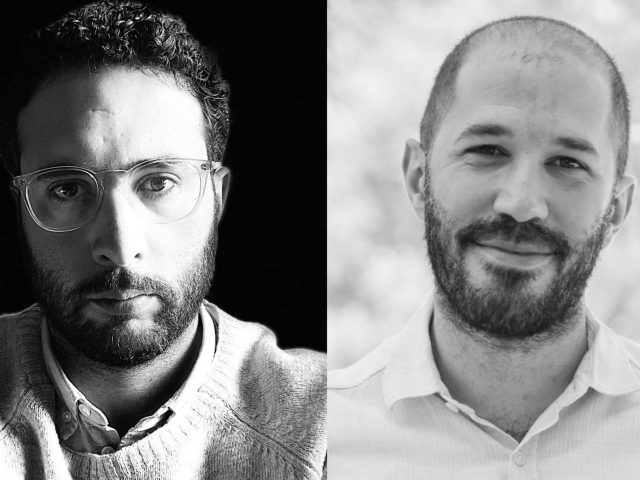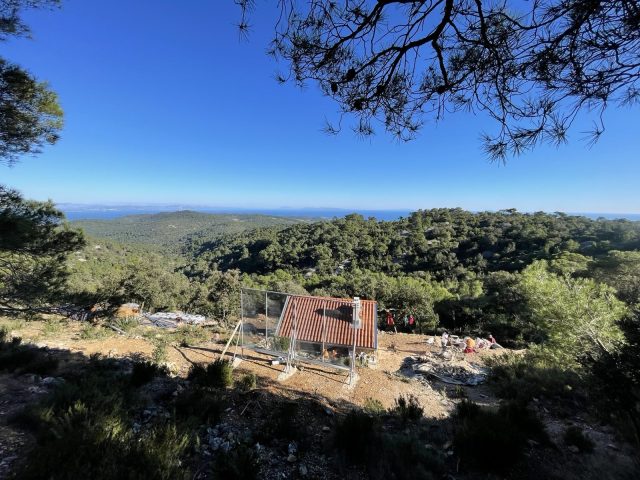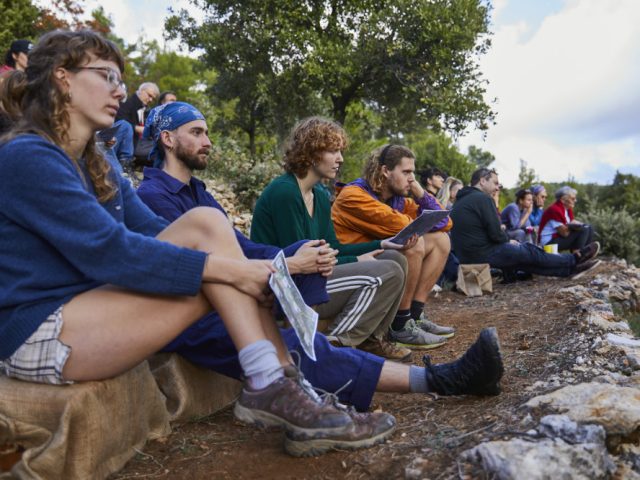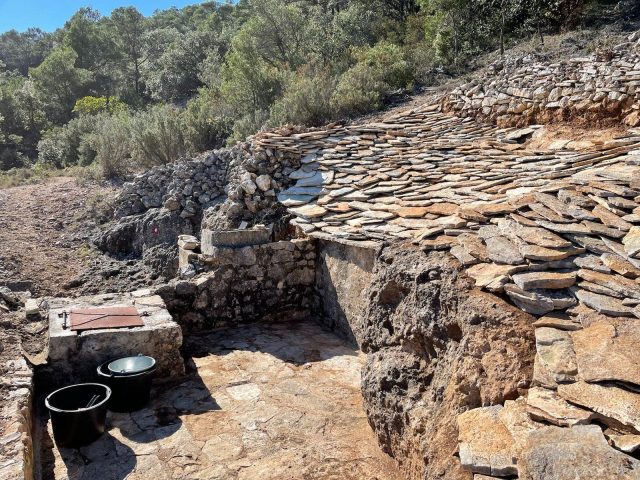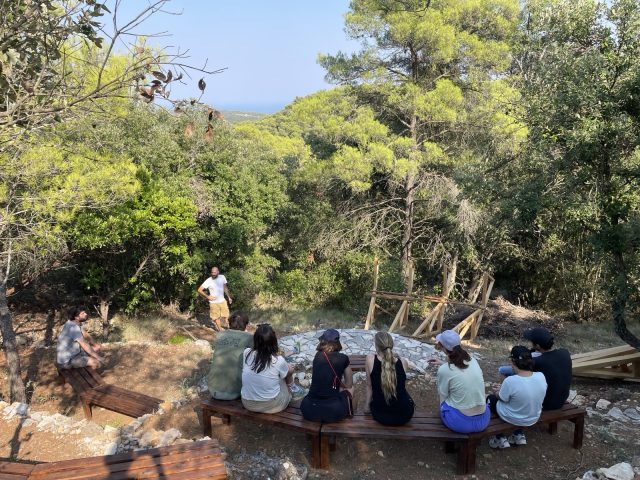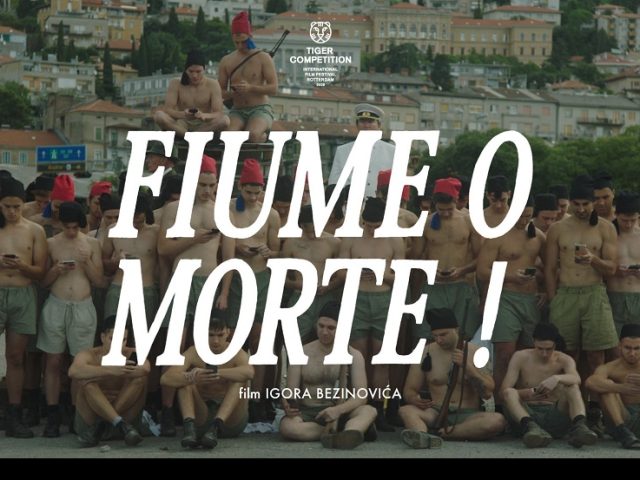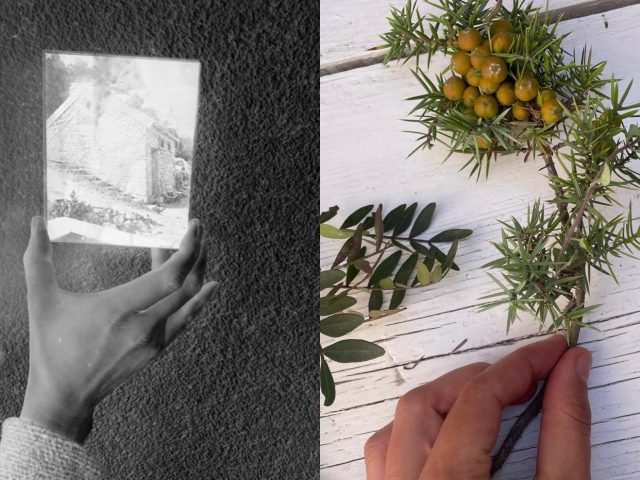Fittingly, in commemoration of the 80th anniversary of liberation from fascism, the Island School of Social Autonomy (ISSA) begins its work on the island of Vis. Lectures, workshops, unconventional tourist tours, experimenting with a pirate radio station, poetry, music, and inevitable work actions – all of this awaits us from September 7th to 10th on the island of Vis.
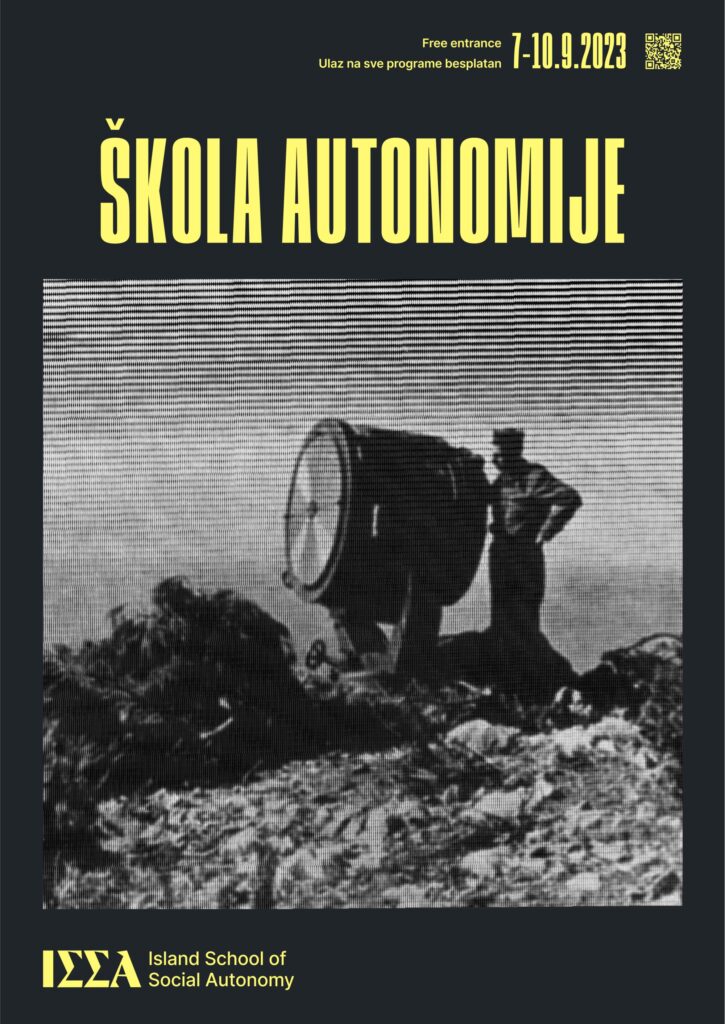
After announcing the launch of the School of Autonomy on one of our most distant islands earlier in the summer, whose co-founders include Srećko Horvat, Goran Bogdan, Hito Steyerl, Gael Garcia Bernal, Dora Held, Marko Pogačar, and many others, ISSA (Island School of Social Autonomy) is now officially starting its activities.
The inauguration of the School will not only address the question and practice of autonomy today but also why we are starting it in the first place. We will confront the matter of what exactly is this School and what it can be, what “a good life” means in times of planetary crisis, and how to build a different future by combining traditional knowledge and modern technologies.
Simultaneously, as September 8th marks the 80th anniversary of Italy’s capitulation and the liberation of the island of Vis – along with other islands and the Dalmatian coast – from fascism, a part of the School’s program will be dedicated to researching and presenting the fascinating history of resistance on the island of Vis.
One of the leading contemporary philosophers, Franco “Bifo” Berardi, will deliver two lectures. The first, titled “How Will We Live? “will take place in Vis on the day of Italy’s capitulation (September 8th), in collaboration with the European Center for the Study of War and Peace at the impressive Vukašinović-Dojmi de Lupis palace. The second lecture, titled “For the Creation of a School of the Unpredictable” (September 9th), will be held on a beach in Komiža.
Bifo’s last public appearance in Croatia was six years ago when he, along with Primal Scream’s Bobby Gillespie, was a guest of Srećko Horvat at the Philosophical Theatre in a packed Croatian National Theatre hall. In the meantime, he has been a regular visitor to Vis and has participated in the creation of the School. His book “The Uprising: On Poetry and Finance” has recently been published in Croatia, and his upcoming lectures are a true philosophical delight.
The artistic collective !Mediengruppe Bitnik is also part of the School, coming from Berlin to lead an unusual tourist tour titled “1 Star Review Tour” (based on reviews of Vis island locations with one star) together with Gordan Savičić and Selena Savić. !Mediengruppe Bitnik is known for disrupting surveillance cameras, placing listening devices in an opera house to transmit performances to the outside world, sending packages with cameras to Julian Assange at the Ecuadorian Embassy in London, and many other intriguing works. As part of the School, they will also present initial experiments with a pirate radio station on the island.
To commemorate the 80th anniversary of the liberation of the island of Vis from fascism, philosopher Srećko Horvat will conduct an “anti-fascist tour of Komiža” through forgotten or suppressed historical locations, as well as existing traces of heroic resistance by the islanders. In collaboration with the City of Komiža and the Tourist Board of the City of Komiža, a fitting celebration of the liberation of Vis Island will be held on Saturday, September 9th, titled “Vinceremo – Vederemo!” (“We Will Win – We Will See!”), an evening of anti-fascist poetry and music at the location where Nikola Marinković “Top” heroically fell in battle against the fascists in 1943.
The name of this program comes from an event at the beginning of the fascist occupation of Vis. As Italian troops arrived on April 30, 1941, local residents lit bonfires on higher hills, and all villages were adorned with anti-fascist graffiti. Young people from Vis crossed out Italian slogans, adding “Vederemo” (“we will see”) to the Italian “Vinceremo” (“we will win”). Resistance against fascist rule took many forms.
On the anniversary of the October Revolution in 1942, Nikola Marinković “Top,” the son of a poor fisherman, climbed to the top of the fifty-meter bell tower of the Komiža church “Muster” and raised a red flag. Although he managed to escape the furious gunfire of the Italian troops that followed, he was later killed. A plaque stood on the street where he was killed until the 1990s; however, like many other plaques dedicated to that historical period and the islanders’ struggles, it was torn down. The celebration of the liberation of the island will take place precisely at that location, featuring an appropriate program with actors Milivoj Beader and Bruna Bebić reading anti-fascist poetry and the forgotten struggles of Vis Island, alongside local talents and a few surprises.
As a conclusion to the four-day program, a work action will take place in the forest on the hill, where the determined group behind this endeavour is building the School of Autonomy.
Admission to all programs is free.
